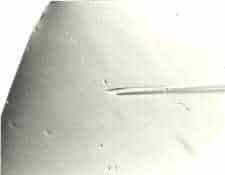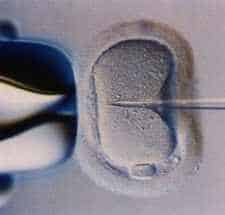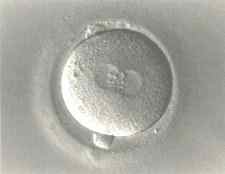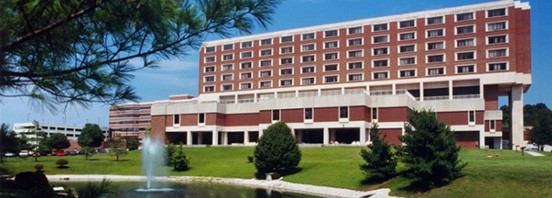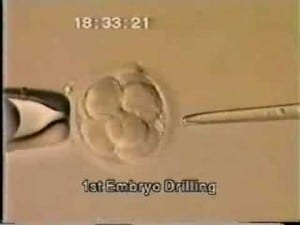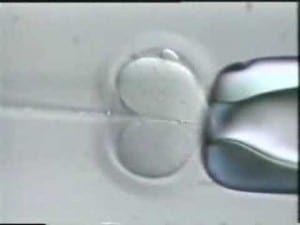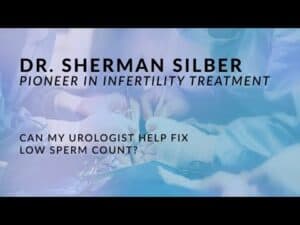Dr. Silber Explains
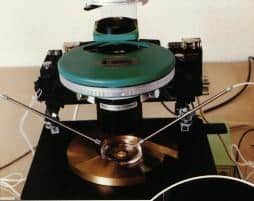
If there is a question of the sperm’s ability to fertilize the egg, due to either a low sperm count or poor quality of the sperm, that poses no problem whatsoever. Intra-Cytoplasmic Sperm Injection (ICSI) would be performed instead of regular In vitro fertilization (IVF). With ICSI, the eggs are retrieved the same as if you were doing conventional IVF. However, the eggs and the sperm are then fertilized in the laboratory, by direct injection of a single sperm into each egg. Three days later the resulting embryos are simply placed into your uterus with no surgery, just as with IVF. Extra embryos are frozen for later attempts at pregnancy.
The availability of this Intra-Cytoplasmic Sperm Injection, “ICSI” technique (which was developed and perfected by the Brussels University and our institution in St. Louis) means that men whose sperm previously were too weak or too few to fertilize in vitro (IVF), now have no problem fertilizing their wife’s eggs.
The fertilization rate per egg using ICSI is remarkably high now in our laboratory. The fertilization rate per infertile coupe is over 99% if the wife has adequate eggs. This technique is very cost effective and will give couples with severe male infertility the same chance as a couple with normal sperm. In fact, we now do only ICSI with all our IVF cycles becuase we get such a high fertilization rate, superior to just mixing sperm in with the eggs and hoping they will fertilize. We are very comfortable using ICSI for all our cycles, since we were the very first in the world to develop it, and have the longest history in the United States using ICSI.
Infertile couples from all over the world come to St. Louis, Missouri, to chase their dream, because Dr. Sherman Silber and his team are simply the best there is.
Discovery Health Channel Documentary
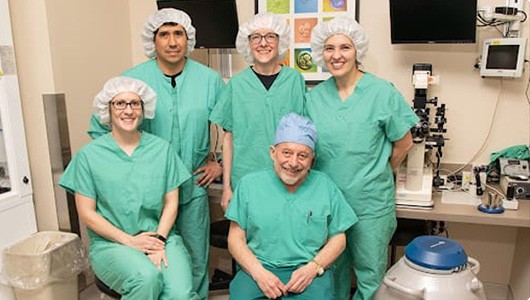
How Does ICSI Work?
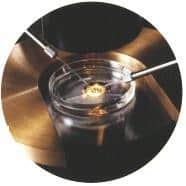
Historically in 1992, in Brussels and St. Louis, we shocked the world when we showed how we can take a single, almost non-moving “dead” appearing sperm and inject it into a woman’s egg, getting normal embryos and normal babies. So far, over a million babies have been born with this new technique from men who were otherwise considered hopelessly sterile. The babies are physically, mentally, and genetically completely normal, no matter how poor or miserable the sperm of the father.
We are so experienced and efficient with ICSI that there are no added fees for us doing it. ICSI is just a routine part of IVF for us. The success of ICSI is very dependant on the right techniques, which we were the center to originally develop. It is easy, unfortunately, for labs that are in too big a hurry to either damage the nucleus (“spindle”) of the egg or completely fail to enter the egg’s membrane. However, this is never a problem with us. For men, who would otherwise have to resort to donor sperm, we can find just a few weak sperm in his otherwise sterile appearing ejaculate. And this is more that enough to mico-surgically inject these few sperm into his wife’s eggs, fertilize them normally, and get her pregnant.
If there is absolutely no sperm in the ejaculate, we can perform a testicle biopsy, remove the few non-moving sperm that we find through a highly refined ultra micropipette, inject it into the wife’s egg and still get her pregnant. Even in testicles where allegedly there is no sperm production, we can usually (but not always) find a few sperm, which is enough for successful ICSI.
We were the IVF center that first developed all these ICSI related techniques and therefor we have the most experience in the world with it. If you have had a vasectomy reversed that failed it is no problem. We can just retrieve the sperm with no pain (believe it or not from your testes) and with ICSI and get the same high pregnancy rate. Of course, we can usually have success with the re-operating on a failed vasectomy reversal. However, it is quite feasible to just retrieve sperm and do ICSI. So that means that the history of having had a vasectomy should never prevent the man’s wife from having a baby.
If you have any questions, you may call us at (314) 576-1400.
